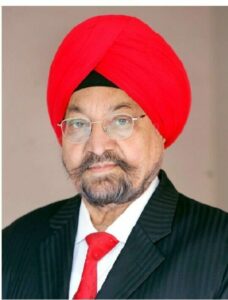
The oath of office taken by a new Member of Parliament (MP) in India is not merely a procedural formality but a solemn commitment to uphold the highest standards of democratic principles, equality, and justice. When an individual assumes office as an MP, they pledge to serve their constituents without any discrimination and to uphold the Constitution of India, which is the bedrock of our nation’s democratic framework.
The oath, mandated by the Third Schedule of the Constitution of India, emphasizes the MP’s duty to bear true faith and allegiance to the Constitution, to faithfully discharge their duties, and to do right to all manner of people in accordance with the Constitution and the law. It is a clear directive that MPs are duty-bound to represent and serve all constituents irrespective of caste, creed, religion, or socio-economic status.
However, recent remarks made by Devesh Chandra Thakur, MP-elect from the Sitamarhi Lok Sabha seat, have brought into question his commitment to this oath. His statement openly declaring that Muslims and Yadavs did not vote for him and that he will not attend to their “personal work” is not just a political faux pas but a violation of the core principles enshrined in the Constitution. Such statements undermine the very essence of democratic representation and equality before the law.
The Constitution of India guarantees every citizen the right to vote freely and without fear of discrimination or reprisal. By suggesting that certain groups of voters are not deserving of his attention or support based on their demographic characteristics, Thakur has not only betrayed the trust of those who voted for him but also violated the principles of equality and non-discrimination that MPs are sworn to uphold.
In response to such egregious violations of the oath of office, there is a legitimate call for parliamentary action. Parliament has the responsibility to uphold the integrity of its members and the sanctity of the oath they take. This includes considering measures such as suspension or censure for MPs who fail to adhere to the principles outlined in their oath. The judiciary, too, plays a crucial role in ensuring that such violations are addressed in accordance with the law and the Constitution.
The condemnation of Thakur’s statements should be unanimous and unequivocal. Leaders across party lines, civil society, and the public at large must speak out against any attempt to undermine the foundational values of our democracy. The freedom to choose representatives without coercion or discrimination is a fundamental right that must be safeguarded at all costs.
It is imperative that actions speak louder than words in upholding the sanctity of the oath of office. The repercussions of allowing such statements to go unchecked are profound. They erode public trust in democratic institutions and perpetuate divisions within society based on identity politics rather than merit and governance.
As custodians of democracy, we must ensure that such violations are not tolerated and that the rule of law prevails for the collective benefit of all citizens.



Be the first to comment